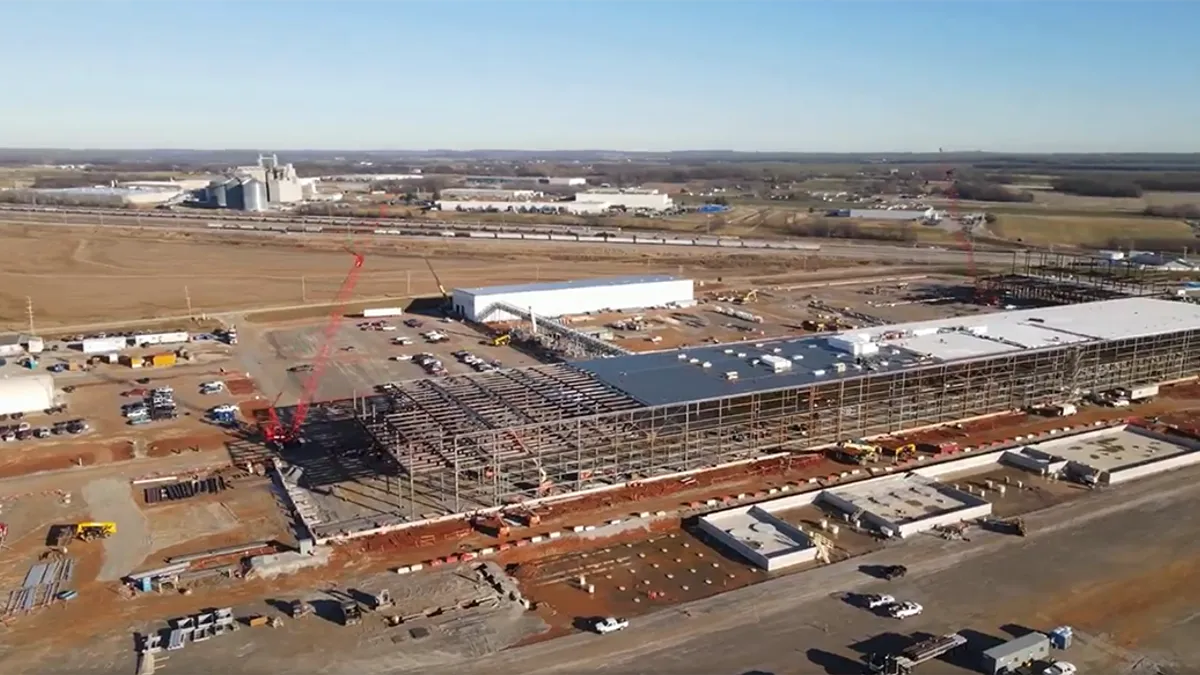This feature is a part of "The Dotted Line" series, which takes an in-depth look at the complex legal landscape of the construction industry. To view the entire series, click here.
You’ve just signed a major construction contract, and you know everything you think you need to know — price, scope of work, directions on sending certificates of insurance, start date and estimated completion date. Unfortunately, some contractors consider all the additional "stuff," or that pile of fine print called the general conditions attached to the back of the first few important pages, to be just standard and nothing to worry about.
"They look at scope, price and insurance, and that’s it," said Andrew Richards, co-managing partner at Kaufman Dolowich & Voluck. Richards noted that many times, a client will come to him seeking advice after the contract has been signed and when there’s already a problem arising from the language in the general conditions.
The fine print can contain potential land mines for contractors, as it includes vital information that can spur legal battles during or after a project. All parties involved with a contract need to pay attention to these general condition clauses, as they can have a major impact down the line.
Ignoring the fine print
Thomas Baylis, partner at Cullen and Dykman, said there are typically three basic reasons why his clients sign contracts without paying too much attention to the fine print. "One is, when you’re a business person, you have a 'nut' every month you’ve got to pay," he said. "You’ve got your staff, rent and equipment, and that’s not going to change whether you have no work or a lot of work."
Another reason contractors might be a little too eager to sign a contract is the hope it will lead to more work opportunities in the future. "You may be willing to take a lesser margin or take more of a risk in order to get your foot in the door with the company, figuring it’s going to bring in more business down the road," Baylis said.
The third reason, according to Baylis, is likely more indicative of how many contractors feel, particularly in a competitive environment. That reason is fear that the owner or general contractor will move on to one of the other contractors bidding on the project — one that doesn’t give as much pushback against the terms of the contract.
Is legal advice necessary?
Does this mean a contractor should always seek an attorney’s advice on every contract? Some experts say the answer isn’t always yes. Richards said it depends on the contract’s size and time span. "The amount of the contract governs how much time you put into the review and negotiations," he said. But Richards added that if the contract is for no more than four or five months, or if the contractor doesn’t have much at stake financially, "You don’t want to over-lawyer it."
On the other hand, John Patrick Curran, partner at Sive Paget & Riesel, gave an "unqualified no" in response to whether a contractor should ever sign a contract without consulting an attorney. "There’s no such thing as a one-size-fits-all contract," he said.
Curran added that he writes his own contracts and still has to tweak them depending on the client or the project. And when it comes to standard contract forms published or promoted by organizations like the American Institute of Architects or the Associated General Contractors of America, he said they’re not always the right fit for every client, especially if he’s representing an owner.
"To the extent that I use them, I modify them," he said. Curran noted that it’s sometimes easier to negotiate a contract if he uses an industry standard form like the AIA’s because people are used to seeing them. "When you issue a contract to a contractor, an AIA document, even one that has been modified, has a certain amount of familiarity and comfort so they don’t have to start from scratch and read every single word," he said.
Important general conditions to keep in mind
While the wording of general conditions may differ slightly from publisher to publisher and from contract to contract, experts said there are common clauses they most often see as the subjects of disputes.
Provisions for delays
First is the section of the general conditions that deals with delays and damages for delays. "I would say that delays ultimately are one of the issues that comes up the most because time really is money to everybody," Curran said. And it’s not just the owner’s worry, as the contractors on the job have payroll and other projects that need attention and costs that keep growing as long as they’re on the job, he added.
Curran said that on the contractor or subcontractor side, it’s important to include language in the contract that enables the company to get an extension of time under the appropriate circumstances. "You don’t want the language to be too one-sided in favor of the owner so that the contractor is now going to be responsible for all kinds of calamities … that result in him having to put more people on the project or work additional shifts in order to make up the time," he said.
And then there’s the "no damages for delays" clause. Curran said this phrase means the contractor — no matter what the reason for the delay — is not entitled to any additional compensation, even if that delay has nothing to do with its work.
Baylis agreed that it is a risk to enter into any contract with this provision. He said that if the job is delayed for months, not only does a contractor have less cash flow during that time, but, if and when they go back to the job, labor or material costs might be higher than originally negotiated. "It’s costing you more, but if there’s a 'no damages for delays' clause, you might not be able to recoup any of those," Baylis said.
Time limits for claims
Another factor to watch for in the general conditions are notice provisions that impose time limits on how long a contractor has to make a claim under the contract for extra time, money or damages. If a contractor does not meet the time requirements for giving such notices, this can result in the owner or general contractor not having to consider the claim at all.
Baylis said contractors should also watch for the notice provisions in the contract that require them to take action when they see a problem or differing conditions on the project. "If you know there’s a problem … you’re probably going to see it before the owner, so to give notice of that is fine," he said. "But to say you have to give it within 24 hours, that may or may not be reasonable depending on the magnitude of the problem."
Payment considerations
Payment itself can be an issue as well, depending on what the contract stipulates. Some contracts will incorporate some variations of "pay-when-paid" clauses. These limit the paying party’s obligation to pay a contractor according to when they themselves receive payment. Pay-when-paid clauses are common in construction and, according to Curran, are "enforceable to a certain degree in most jurisdictions."
Pay-if-paid clauses, however, are a different story. "Now the question is, what if he’s never paid? Then it becomes a litigated topic," Baylis said. He added that many jurisdictions will not enforce such a clause.
Termination clauses
Finally, there are the termination clauses. When and for what reason can a contractor be fired? While there are always termination clauses for breach of contract, it’s important to include a satisfactory "cure" period, which gives a contractor reasonable time to fix whatever problem brought about the notice of termination, Richards said.
There are also termination for convenience clauses, meaning a contractor can be let go for any reason or no reason. Curran said that when faced with this clause, a contractor should make sure that, in the event of such an action, there is also a provision for payment of lost profit and overhead in addition to expenses incurred prior to termination.
The importance of keeping all stakeholders informed
Regardless of the general condition clauses, Curran said all parties should also make sure the terms of the contract are coordinated with other related project contracts, such as those with subcontractors. If a contractor, for example, has special notice or payment provisions in his contract with the owner, they should make sure the subcontractors have to abide by those same conditions.
And when it comes to contracts in general, according to Curran, there’s one thing to remember. "There are people out there doing business who think that it’s good to try to get over on a contractor, but how does that help?" Curran said ambiguous provisions or clauses that one party tries to sneak into the contract will almost always lead to a legal dispute, slowing down the project and costing everyone a tidy sum in legal fees.
"It’s never in anybody’s interest for either party to sign something they don’t realize they’re signing," Curran said.
The Dotted Line series is brought to you by AIA Contract Documents®, a recognized leader in design and construction contracts. To learn more about their 200+ contracts, and to access free resources, visit their website here. AIA Contract Documents has no influence over Construction Dive's coverage within the articles, and content does not reflect the views or opinions of The American Institute of Architects, AIA Contract Documents or its employees.





















